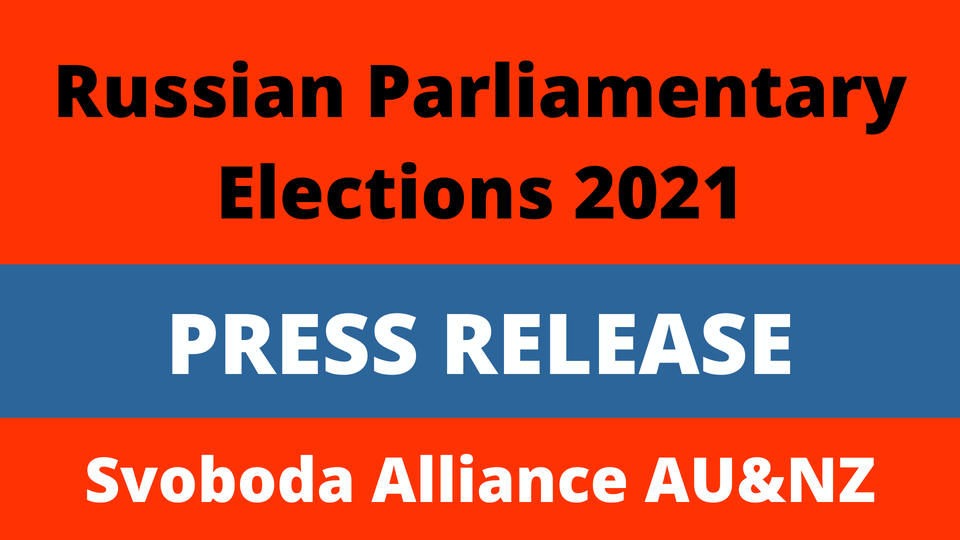Russian citizens residing in Australia participated in the Russian Parliamentary elections (17-19 September, 2021). Due to the COVID travel restrictions and rules, the voting took place only at the Russian Embassy in Canberra and at the Consulate in Sydney (typically polling stations are set up in six major cities around Australia). The turnout in Sydney and Canberra was almost identical to the Parliamentary elections in 2016, showing a persisting interest of the Russian diaspora in these elections.
The Russian Parliament is elected using a mixed system, so the voters receive two ballots at the polling station. 50% of 450 seats are allocated to the political parties that receive at least 5% of votes and another 225 seats are allocated to single-mandate candidates to represent electoral regions. Currently, President Putin’s pillar party, United Russia, holds the constitutional majority with 76% of seats while pre-election opinion polls run by the government’s official pollsters showed that less than 30% of population intended to vote for United Russia.
The results in Canberra and Sydney and an exit-poll show that the majority of Russian voters in Australia followed the Smart Voting recommendations published by Alexei Navalny’s team on 15 September. The aim of the Smart Voting strategy is to consolidate the protest vote in a situation when independent and strong opposition candidates are not allowed to run. The team analysed vast amounts of information and identified the candidates with the best chances of beating President Putin’s United Russia candidate to consolidate the protest voting. This meant supporting one of the three opposition parties with the best chance of clearing the 5% threshold and, for the electoral region to which Australian polling places are attached, choosing the CPRF candidate.
Party list (14 registered):
- CPRF – 41%
- United Russia – 19%
- “Yabloko” – 12%
CPRF is the only political party that voted against recent laws passed in 2021 suppressing civil freedoms in Russia. Yabloko is the only well-established liberal and democratic party in Russia which has been denied seats in the federal Parliament after 2011.
Single-mandate candidates (7 registered):
- CPRF candidate (Smart Voting recommendation) – 63%
- United Russia candidate – 14%
- “Yabloko” candidate – removed from the ballot
The results in Australia are similar to the results reported from almost all the polling places outside of Russia. This shows that civic-minded Russian immigrants around the world are uniting around Alexei Navalny (currently in jail) and supporting the Smart Voting strategy to protest the rule of the United Russia party.
After a significant delay, the Russian Electoral committee announced overnight that Putin’s United Russia party retained the two-thirds constitutional majority. But the results are heavily tainted by thousands of well-documented reports of fraud. That includes packs of pre-filled and counted ballots found in many boxes, safe storages with secret safe doors and busloads cruising between voting stations, followed by physical abuse and threats against independent elections monitors and even candidates.
The electronic voting scheme was used for the first time in federal elections. The implemented system has no transparent ways to check its robustness and correctness of the final vote counts. Not surprisingly, electronic votes, published with almost a day’s delay, completely reversed the outcomes of dozens of races, especially in Moscow, where opposition candidates were leading according to the results reported from the paper-based polling places. Some political scientists and statisticians estimated that 12-16 million (!) ouf 53.3 million votes cast were artificially added to United Russia’s tally and only about 15% of voters supported it in these elections. While the full extent of electoral fraud is being documented and systematised, it is already evident that Putin’s United Russia party is not elected democratically and is not a legitimate governing force in Russia.
We expect a further shrinking of the political and civil freedoms in Russia and urge the international community to consider that the announced results of the Parliamentary elections do not reflect the actual political beliefs of the vast majority of Russians.
